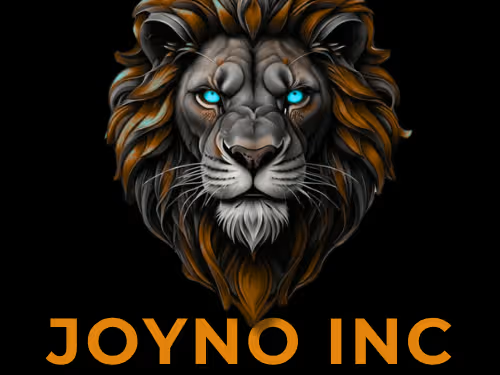
ELEGANT WEB DESIGNS
Contact for pricing
About this service
Summary
Deliverables
FAQ
FAQs
What is social media marketing?
Social media marketing (SMM) is a type of digital marketing that enables companies to market their products or services using social networking websites and mobile applications. These platforms allow consumers to share opinions about brands directly with others who they know socially. These sites also provide analytics tools to track consumer engagement, which can help shape your social media strategy.
How does social media differ from traditional advertising techniques?
Traditional advertising methods have been around for a long time. Marketers have relied on printed materials, radio, television, and even billboards to advertise their brand. While these forms of advertisements still exist today, they are not effective in communicating with modern audiences. In comparison, social media provides marketers a way to connect directly with consumers through online communities. Through social networks, businesses can post content, build trust, and receive feedback about their product or service. If done right, these interactions can lead to sales.
Can social media marketing really help my business?
Most definitely! It’s been proven again and again by business after business. In fact, more than half of internet users (56%) purchase a product online each week. Omnichannel marketing is highly effective, with most consumers using at least three channels for each purchase journey. Having an online presence is expected these days, therefore not utilizing social media marketing can actually harm your business.
What are the benefits of social media marketing for my company?
Whether or not your business is taking advantage of it, social media has forever changed the way that consumers communicate with businesses, and vice versa. Being accessible to your customers – and your prospective clients – via social media is a vital means of developing relationships with them and helping them through the sales funnel. Here are just a few of the benefits of using social media marketing for your company: Increased visibility As mentioned earlier, social media gives your company increased exposure. People can find your business no matter what city they live in simply by searching for your name. Targeted traffic Another benefit of social media marketing is that you can target specific audiences based on demographics, location, interests, age, gender, and even income level. Improved SEO rankings Since search engines favor social media results over traditional web pages, having a strong presence on social media can help improve SEO rankings. More customer service Many social media sites give you the chance to communicate directly with your customers. If someone asks a question, you can answer them directly. This is important considering 53% of X users find it helpful to see how brands handle issues and answer questions on the platform. Brand awareness Having a strong social media presence helps create positive word-of-mouth advertising. Your customers can feel free to talk about your business and engage with you on social media without feeling self-conscious. Customer loyalty A final benefit of social media marketing that should not be overlooked is building customer loyalty. When 61% of consumers recommend your brand to friends and family, that’s trust that will lead to repeat purchases and new customers. When your customers love what you sell, they’ll likely buy from you again—and tell everyone they know about it.
How should companies measure their social media marketing success?
Social media marketing success is measured using the same metrics you use for any other marketing activity: traffic, leads, and customers. Counting the number of fans or followers you have can help you understand your social media reach, but the bottom line that determines its success is how many people it drives to your site, how many of them are qualified leads, and how many of them actually become customers.
How much does social media marketing cost? What’s the ROI?
One thing is for certain – social media marketing is never free. Whether you’re spending your own valuable time on it, asking an employee to add it to their workload, hiring a social media employee, or outsourcing to a marketing firm, there is always a cost. The key is to get the maximum ROI out of the time or money you put into it. It’s important to remember, however, that ROI doesn’t have to mean revenue. It can also mean meeting other objectives, such as getting new leads, increasing email subscriptions, or even boosting customer satisfaction. The ROI you end up with is the direct result of how focused your social media marketing strategy is. 3 to 1 is normal. 5 to 1 very good. 10 to 1 Excellent.
How can I get started when I’m not even familiar with social marketing?
Not sure how to shape a strong social strategy? Don’t worry, we’ve got you covered. Our team of experts can take care of everything from brainstorming ideas to posting content and monitoring analytics. We’re here to help you build your online community.
Which social media platforms should my business have a presence on?
There’s no set answer to this question because you need to have a presence wherever your customers are—and different businesses have different audiences. One demographic spends most of their time on Facebook, while another really only engages on LinkedIn, and some divide their time equally between three or more sites. Find out where your customers are and follow them there. WE DETERMINE BASED ON THE INDUSTRY AND COMPETITION.
Does my company really need a blog for social media marketing?
Yes! A blog is one of those non-negotiable assets you need in marketing. Apart from all of the benefits it provides on its own—such as increasing your credibility as an industry expert and providing fresh, keyword-rich content on a regular basis to please the search engines—a blog is a vital component of social media marketing. Links to blog posts are some of the most effective types of content to post on social media, especially on Facebook after its recent algorithm changes. Without fresh blog posts being shared on a regular basis, you won’t have nearly as much to talk about with your consumers, and you won’t drive as much traffic to your site, either.
Is social media marketing better for B2C or B2B businesses?
It’s important for both, but in different ways. While B2C businesses can focus on more light-hearted, fun social media posts, B2B businesses need to use social media to share valuable B2B content marketing. However, social media is a vital tool to both when it comes to connecting a business with its customers.
What's included
CONCISE CONTENT CREATION
Posts: Text-based and visual posts for different social media platforms. Graphics: Images, infographics, and other visual assets to accompany posts. Videos: Short-form and long-form videos for various platforms. Stories: Visual content designed for platforms like Instagram and Snapchat. Content Calendar: A schedule for publishing content, ensuring consistency and timely updates.
RESULTS STRATEGY
Social Media Audit: An assessment of existing social media presence and performance. Social Media Strategy: A plan outlining goals, target audience, platform selection, and content approach. Campaigns: Targeted initiatives to promote specific products, services, or events.
MANAGEMENT AND MONITORING
Social Media Audit: An assessment of existing social media presence and performance. Social Media Strategy: A plan outlining goals, target audience, platform selection, and content approach. Campaigns: Targeted initiatives to promote specific products, services, or events.
ON POINT DELIVERABLES
Reports: Detailed reports on social media performance, including metrics like reach, engagement, and ROI. Social Media Advertising: Paid campaigns on platforms like Facebook, Instagram, and Twitter. Influencer Marketing: Collaborations with influencers to promote a brand or product. Content Curation: Finding and sharing relevant content from other sources.
Industries





